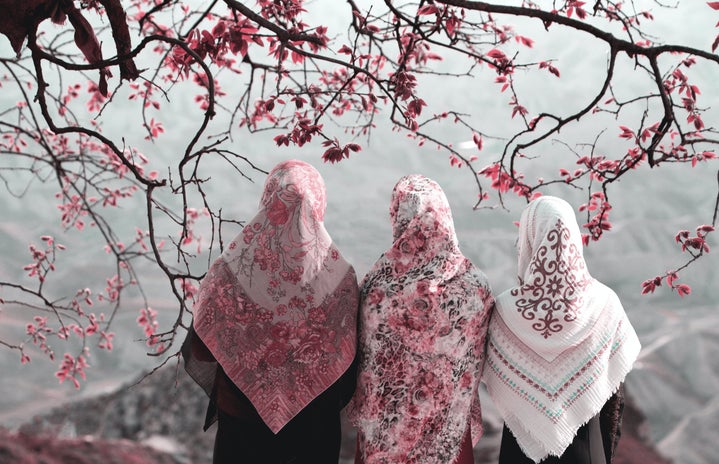The Islamic month of Ramadaan comes around once a year for Muslims around the globe – you may know it as the time of year where Muslims fast everyday for an entire month. As a Muslim, observing Ramadaan for the better part of my life, I have experienced many weird and wonderful questions and perceptions about this month from my friends. If you are as intrigued about this month as they always are, you’ve probably wondered about the same things as mentioned below.
- It’s seriously not even water… at least till sunset.
-
When we say we can’t eat or drink anything from sunrise to sunset – we mean ANYTHING. The time of eating before sunrise is called Suhoor, and the time of breaking fast at sunset is known as Iftar (or ‘boeka’ in Cape Malay culture) – we eat as much or as little as we want to at this time. So don’t worry.
Fasting days range from being 12 hours to longer than 18 hours depending on your location. Fasting is difficult during the first few days, if not the first 2 weeks, of the month, but Ramadaan is about a lot more than eating and drinking. So, if observed properly, we do make it through the days. Besides, we know Eid is waiting for us at the end of the month and that’s a whole other celebration on its own.
- It’s a lot more than just “not eating and drinking”.
-
During this month, Muslims believe that the gates of heaven are wide open, and gates of hell are shut. This means that the month is the optimal time for us to repent, and to better ourselves spiritually.
You may have heard some say that it is “to feel how the poor people feel” – yes. But the biggest part of Ramadaan isn’t the abstinence from food and drink, it’s about abstaining from the worldly things that can make us drift from who we are as people. The month is greatly about connecting with our faith, giving charity, and releasing ourselves from worldly bounds. This is the reason behind some Muslims often saying “ I can’t swear; I’m fasting”, abstaining from things like films/tv, music or sex (like with food/drink, this is permissable after sunset).
- Why do girls sometimes get ‘off-days’ from fasting?
-
You may have noticed your girlfriend fasting during days after Ramdaan, or before the next Ramadaan – often called “paying/fasting in” their days. This is because it is inevitable for women to receive their periods during the month of ramadan, which exempts them from fasting those days.
This may sound like a break or even a blessing, since you won’t need to fast on those days, but… those days need to be fasted back. So, technically it’s like getting paid leave, but you have work those hours back. Those missed fasting days when women are on their periods are to be fasted back before the next Ramadaan comes around.
- Things not to ask/say to your fasting friend
-
Having fasted (and being Muslim) for so long, I am still amazed and amused by some of the comments or ‘suggestions’ my non-Muslim friends make while I’m fasting.
“Just have a little; Allah won’t mind!” – this one always makes me chuckle, because while we know that Allah will forgive us, it defeats the purpose of the entire month: spirituality. Plus, our fast will be disregarded… and we don’t want that.
“You can’t even have water!?” – another favourite of mine. No, seriously, not even water… at least until the evening/tomorrow before sunrise.
“Are you going to bring me (insert food) tomorrow?” – we don’t mind sharing food with anyone. Food is a blessing. Requesting this may however seem insensitive, considering you haven’t been fasting, and they’ve been fasting long and hard for that food.
“Is it like dieting?” – not really. With healthy dieting, there is a set plan, with meals and times involved. Fasting is a whole-day event, where no food/drink is taken whatsoever. And then we shove our faces with samosas and donuts in the evening so…
“Why are you wearing a scarf all of a sudden?” – it is common knowledge that some Muslim women wear headscarves, while others don’t. During Ramadaan, some may choose to cover up more than they usually do – this isn’t deserving of judgement. It is simply their choice to observe such dress during the spiritual month (or any other time for that matter).
“Aren’t you hungry/thirsty” or “Don’t you hate Ramadaan?” – this question for me is equal to “aren’t you getting hot wearing that?”. Yes, I am hungry and thirsty (just as how I’m hot during summer). Anyone who hasn’t been eating or drinking for most of the day would be… and they’d probably be upset too. This doesn’t mean we hate Ramadaan – we appreciate it.
- What’s it like fasting during lockdown?
-
Tough. A huge part of Ramadaan is the sense of community: exchanging food and cake for Iftar, gatherings for Iftar at family/friends, meeting at the mosque for salaah and so much more. We miss out on this during lockdown, we feel isolated, and the days sometimes feel longer. But in the end, the month also teaches us patience, and that “after every hardship: comes ease”.
- How to support your fasting friend
-
More than anything, we want to have support – even if you don’t understand what the month is entirely about. While it is an annually recurring event, it’s still hard for most muslims to do – we go from spending our time listening to music, watching tv shows, swearing in 500 languages (guilty as charged), to observing humble practices, all while still living through a materialistic world. So, support your fasting friend by little reminders:
– Try not to let them cuss/make them angry (and try to not cuss around them)
– Understand if your friend is trying to better themselves in this month (even if they do some rowdy things before or after)
– Do not mock them/flaunt around them if you yourself aren’t fasting,
– Don’t say things like “I could never do that”, “don’t you feel hungry?” – it IS hard, and they probably are hungry,
– Be understanding that it is to better themselves, and that afterwards they won’t come out being saints.
– Gift them something for them and their family to share. I always felt warm and fuzzy inside when my friends would give me a chocolate to share with my family at Iftar.
Ramadan means a lot to many Muslims, and is quintessentially an uplifting time of betterment for each person observing. Some Muslims observe the month more strictly than others – but this should not warrant judgement (especially from friends). Teasing, while a friendly jest, may be a more sensitive matter during this month – so it is important to understand that your friend might be trying their best.
And while we know you mean well with the strange questions, remember to support your fasting friend. And please do not ask them to bring you a ‘barakat’ (leftover food from Iftar/Eid) – we may just blank-stare at you. Ramadan Kareem!


